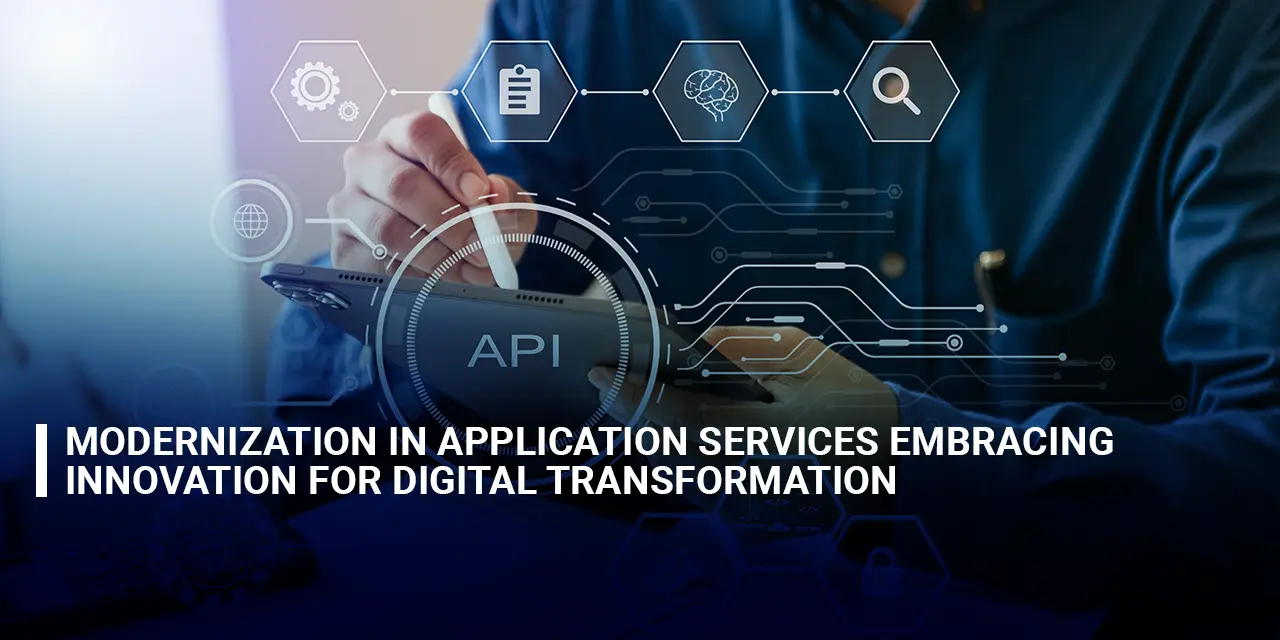Research
Share Knowledge
Brainstorm Ideas
The Need for Modernization
1. Adapting to Changing Customer Expectations:
As consumer preferences shift towards digital interactions and seamless experiences, businesses must modernize their application services to meet these evolving expectations. User-centric design and functionality are critical for retaining and attracting customers in today's competitive marketplace.
2. Improving Operational Efficiency:
Legacy applications often suffer from inefficiencies and technical debt, hindering agility and scalability. Modernization initiatives aim to streamline processes, automate tasks, and optimize performance to drive operational excellence and reduce costs.
3. Enabling Innovation and Growth:
Modernized application services provide a foundation for innovation, enabling businesses to experiment with new technologies, business models, and revenue streams. By embracing innovation, organizations can unlock new opportunities for growth and differentiation in the market.
Key Strategies for Modernization
1. Cloud Adoption:
Transitioning application services to the cloud offers numerous benefits, including scalability, flexibility, and cost efficiency. Cloud-native architectures leverage cloud resources and services to deliver scalable, resilient, and agile applications that can adapt to changing demands.
2. Microservices Architecture:
Decomposing monolithic applications into smaller, independent services allows for greater agility, scalability, and maintainability. Microservices architectures enable teams to develop, deploy, and scale components independently, accelerating time-to-market and facilitating continuous innovation.
3. Containerization and Orchestration:
Containerization technologies such as Docker and orchestration platforms like Kubernetes provide a standardized and portable way to package, deploy, and manage applications. Containerized environments offer greater consistency, scalability, and efficiency, simplifying deployment and management tasks.
4. API-First Approach:
Adopting an API-first approach to application development enables organizations to expose functionality as reusable APIs, allowing for easier integration with external systems and enabling a more modular and scalable architecture. APIs facilitate interoperability, collaboration, and innovation across the ecosystem.
5. DevOps Practices:
Embracing DevOps practices such as continuous integration, continuous delivery, and automated testing streamlines the software development lifecycle and fosters collaboration between development and operations teams. DevOps enables faster, more frequent releases, shorter feedback loops, and improved reliability and quality.
6. Data-driven Insights:
Leveraging data analytics and machine learning capabilities allows organizations to derive actionable insights from application telemetry, user behaviour, and performance metrics. Data-driven insights enable informed decision-making, personalized experiences, and continuous optimization of application services.
Conclusion
Modernization in application services is essential for organizations seeking to drive digital transformation, enhance customer experiences, and remain competitive in today's fast-paced business environment. By embracing innovative technologies, architectures, and practices, businesses can modernize their application portfolios, unlock new opportunities for growth, and stay ahead of the curve. Whether migrating to the cloud, adopting microservices architectures, or implementing DevOps practices, modernization initiatives enable organizations to innovate, adapt, and thrive in the digital age. Embrace modernization today to shape the future of your application services and unlock new possibilities for success.
How Can We Help?
ITPN has leading-edge capabilities, top-class experts, and pioneering experience in this area. Please contact us if you have any questions or need assistance regarding our services.

